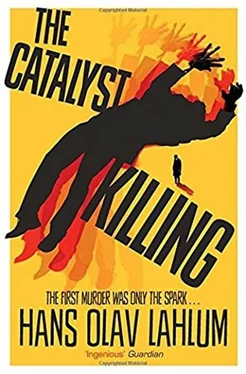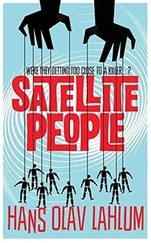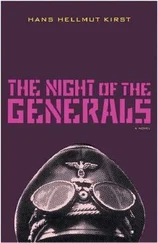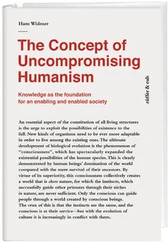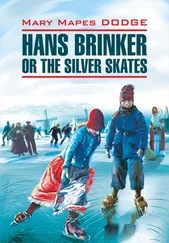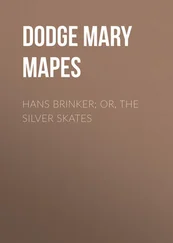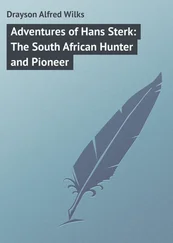I felt enormously irritated with the sheriff, but could only forgive him when he carried on hastily: ‘It was a mistake, I realize that now. And I apologize deeply. But you will have the jacket and its contents soon enough now. My son drove directly from the scene of the crime, and he left about an hour ago now, and was told that it was urgent. So he should be there in no more than two.’
The sheriff sounded disheartened and he really had done his best to help me. So I thanked him sincerely, and promised to contact him as soon as there were any new developments in the case. He was almost touched by this and repeated that I should have the jacket and the diary page by around half past one. I told him that the fact that it had been found was a huge breakthrough in the investigation.
We finished the call on a good note, though I was silently annoyed at not knowing what it said on the missing diary page.
I telephoned Patricia and gave her a brief report about what had happened so far. She sounded very stern, but whistled appreciatively on hearing about the jacket. She asked me to come over with it as soon as possible, and she would ensure that a late lunch was waiting.
We would have plenty of time to look at the diary page before the opposition leader’s speech at half past four, but not before the prime minister’s speech at three, I said.
Patricia sighed into the receiver and said that it was hard to justify the sudden cancellation of such an important event without a definite threat. But she added that I should come as soon as I could if the missing page proved to contain anything of interest.
There was a spread of open sandwiches on the table in my boss’s office when I got there at two minutes to midday. And Danielsen was already sitting comfortably in the chair closest to our boss.
I told them that Falko’s jacket had been found, and that it might well contain something of interest, without giving any more details; but that other than that, I had no news of any significance. Both nodded, but did not show much interest in the jacket.
I asked Danielsen, not without some schadenfreude , if he had made any progress in his meetings with the two former Nazis. He took his time.
‘Well, it would be untrue to say that. They were very uncooperative to begin with, and even though things did improve, there is little that is new. They either do not remember, or do not want to remember, anything about the fourth person in the photograph. And as for alibis for yesterday, they both have one. They had a meal together at the Grand Café between four and six, and I have confirmed this with the head waiter there. I asked, just in case, if the staff could remember having seen them there with others, but they couldn’t. It is of course difficult to remember months back, when the place is so popular. And by the way, Mr Eggen commented that we only had to ask the officers watching his house if we wanted to know when he went out.’
We all smiled slightly sheepishly. I said that I knew nothing about his house being under surveillance.
‘Generally, the two of them have very little confidence in society, the police in particular. They obviously feel they are being persecuted for their political views. And given their background, it is easy to have some sympathy, no matter what one might believe and think about their politics.’
My boss and I both looked at Danielsen with slightly raised eyebrows. He quickly changed tack.
‘Neither of them is particularly nice, though one of them is more polite than the other. Having said that, their criminal offences are now well in the past, and I am not convinced in any way that they have much to hide now.’
I stared at him, my eyes wide, but noticed with some concern that my boss seemed to show more interest. Danielsen obviously noticed this too, and straightened up in his chair before continuing with his argument.
‘Both have been law-abiding citizens for twenty-five years, both have an alibi for yesterday, and it could well be no more than a form of protest that they refuse to tell us about the person they had dinner with all that time ago. Strictly speaking, the photograph really only proves that they had a meal with a man who is now dead. I have another theory that might fit just as well.’
Danielsen now had our full attention. Ingeniously, he waited until both my boss and I had asked him to tell us his alternative theory before carrying on.
‘I think it is more likely that we will find the murderer among the young communists than these relatively frail old ex-Nazis. I accept your theory that Henry Alfred Lien passed on information to Falko Reinhardt. But there is nothing to disprove that Reinhardt might have killed both Lien and his fiancée, Marie Morgenstierne. The pieces all fall into place if he himself was then killed by one of the other communists. Arresting Kristine Larsen was obviously a mistake, and she should be released immediately. After all, she was in prison in Oslo when Reinhardt and Lien were shot. Trond Ibsen and Anders Pettersen do not seem to be very trustworthy and, unless otherwise proved, they could well have killed Falko Reinhardt. If one of them had inherited Marie Morgenstierne and was the father of her unborn child, then jealousy or revenge could be a motive.’
I asked Danielsen if this meant that he thought there was no danger of an imminent attack. Again, he was annoyingly prompt with his answer.
‘Well, there are two possibilities, if my theory is right. This Reinhardt fellow seems to have been so self-centred that he may have made up the whole story of an attack just to get attention. But it is also possible that he knew that one of the others in his group was planning an attack, and that is why he was killed. So my answer is that I do not believe in the idea of a Nazi plot, but that I am open to the idea that an attack of some sort is being planned. And in that case, we need a breakthrough in the investigation, as time is of the essence.’
He was very pleased with himself as he looked from the boss to me, and then back to the boss. I heard myself say that it seemed pretty improbable to me. But I immediately felt very uncertain, and I was extremely worried that Danielsen might present a theory, only a few hours into the investigation, that proved to be true.
Danielsen gave a serene smile.
‘The case is obviously complex, so of course I cannot guarantee that my first theory is right. But in complicated cases like this, it is often wise to keep different options open. So, unless you have anything up your sleeve that disproves my theory, allow me to suggest that we each continue to work on our respective theories this afternoon. You can continue working with the so-called Nazi network, while I have another round with the communists. It would in any case be beneficial to learn whether they have alibis for yesterday.’
My boss sent me a questioning look. I swallowed quickly, and replied that while I was not convinced by this alternative theory, I of course did not object to splitting the work this way. Danielsen smiled broadly before carrying on.
‘Splendid. Just one thing more: any conflicts and conspiracies in the communist group may well go back to the time before Falko disappeared, so with your permission, I would like to have a serious talk with Miriam Filtvedt Bentsen as well.’
For a moment I started to wonder if I would be suspected of anything next. And I hoped fiercely that Danielsen would then not suspect me of being a little bit in love with Miriam Filtvedt Bentsen, because in that case, I would find it very difficult to disprove.
I was as relaxed as I could be in my reply. I said that I had questioned her on several occasions without discovering anything of interest, and that I would be very surprised if he found anything, but that he was of course free to look for her at either the university library or the SPP office. He thanked me with forced friendliness, and noted down the addresses for Trond Ibsen and Anders Pettersen.
Читать дальше
